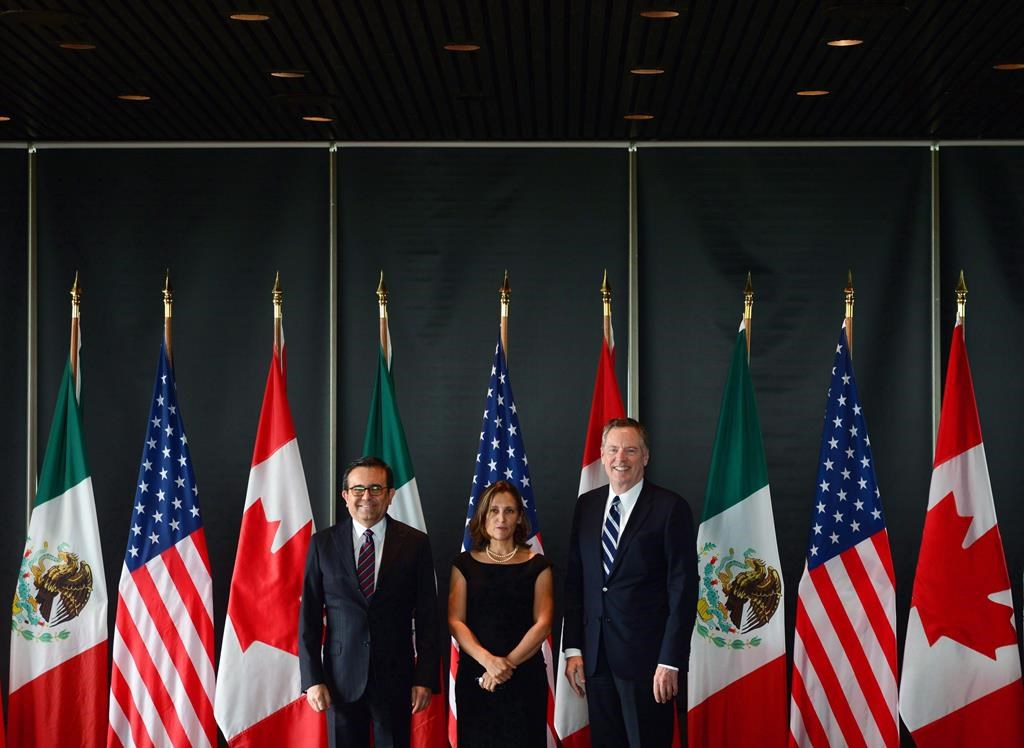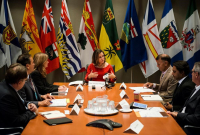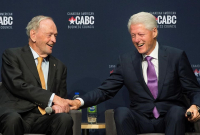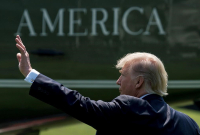Support strong Canadian climate journalism for 2025
A book which Foreign Affairs Minister Chrystia Freeland shared with her U.S. and Mexican colleagues during the last round of NAFTA negotiations, offers a dark message about globalization's collapse, the rise of nationalism and humanity tumbling into an abyss of death and destruction.
She brought three books to an informal book club with peers Robert Lighthizer and Ildefonso Guajardo. Two tell a positive tale of human advancement. The third serves up a bleak historical lesson about the big anti-globalization backlash of the last century.
It's no accident she chose to share "The War That Ended Peace," Canadian historian Margaret MacMillan's look at the factors that led to the first of two world wars. Freeland, the book and, in an interview, the book's author, all cite similarities to today.
Freeland and other Canadian officials have been struck by the book's haunting tale: how a period of fast-paced globalization, prosperity, disruptive technology and increased trade was brutally upended by nationalism, zero-sum logic, a global terrorism panic and glorified militarism, ushering in the most blood-soaked era in history.
"(It) documents the speed and ferocity with which reaction can set in, even at times when the world feels safely rooted in a progressive and peaceful era," Freeland said in response to a question about the book.
"As with today, the beginning of the 20th century was marked by unprecedented globalization and growth. The events between the turn of the century and the outbreak of war in 1914 are a useful reminder (of) the fragility of the world order and the pitfalls of protectionism and retreat."
The book starts with the 1900 Paris world's fair and the Belle Epoque.
That world was unprecedentedly interconnected by railways and the telegraph. Trade skyrocketed. Germany and England even traded weapons. People lived longer, healthier lives. New international mechanisms were created to settle disputes. Countries signed arbitration agreements, refined international rules of war and even talked about creating global governance bodies.
The book describes a growing belief that war itself was becoming obsolete, quoting one author: "People no (more) believed in the possibility of barbaric relapses ... (than) in ghosts and witches'."
But these were also disruptive times.
Economies underwent radical transformations and workers left farms for new manufacturing jobs in the cities.
Terrorism was rampant. Anarchists had killed, bombed, stabbed and shot a French president, two Spanish prime ministers, an Italian king, a U.S. president, an Austrian empress, a Russian statesman and a Russian royal.
MacMillan writes of the militaristic backlash. People fumed about the new softness of European men, responding with military-themed organizations for boys. Politicians increasingly wore uniforms in public.
Soft-centrist politicians were booted from power.
Classical liberal parties devoted to open markets were demolished, left and right. On the left, by socialists, and on the right by, "chauvinistic nationalist parties... A new breed of politicians was going outside established parliamentary institutions to appeal to popular fears and prejudices and their populism ... frequently included anti-Semitism."
MacMillan is thrilled policy-makers might draw lessons from that time. She also credits them for trying to squeeze her 649-page book, and two other books, into busy schedules.
"I'm impressed," MacMillan said in an interview from England.
"How they find time to read anything, much less a huge, fat book like mine, I can't imagine. I wonder if they looked at (Freeland) and thought, 'What is she doing giving us this enormous book?'...
''(But) I always find it reassuring when statesmen do have a sense of history. ... It helps them — to give them perspective."
MacMillan cautions that there are no perfect parallels in history, that circumstances change.
But she said there are obvious echoes in this anti-globalization, America First, Brexit era — with nationalist politicians complaining about foreigners, international agreements, duty-free imports and global institutions forged after the Second World War.
"There are, I think, warning signs," she said.
"There are parallels that should make us at least stop and think."
If policy-makers take away one message from her book, she says, it's this: The pursuit of narrow self-interest can inspire others to respond in kind and everyone winds up worse off.
The other books Freeland shared are more optimistic.
She gave colleagues, "Sapiens," a sweeping history of the human species by Noah Harari, a favoured author of Guajardo's. The final tome was from prize-winning economist Angus Deaton.
In his, "The Great Escape," the Scottish-American author unleashes an avalanche of data illustrating the good fortune of living today in an era of unprecedented wealth, health and human lifespans.
He even argues that growing inequality — within and between countries — is a natural effect of rapid technological change, as people catch up at different paces. He suggests ways to address that inequality, including trade and education, rather than traditional international assistance, which he criticizes.
Even MacMillan's book ends on a slightly optimistic note.
After chronicling the tragic decisions that pushed Europe into a canyon of catastrophe, she concludes with four hopeful words: "There are always choices."





Comments